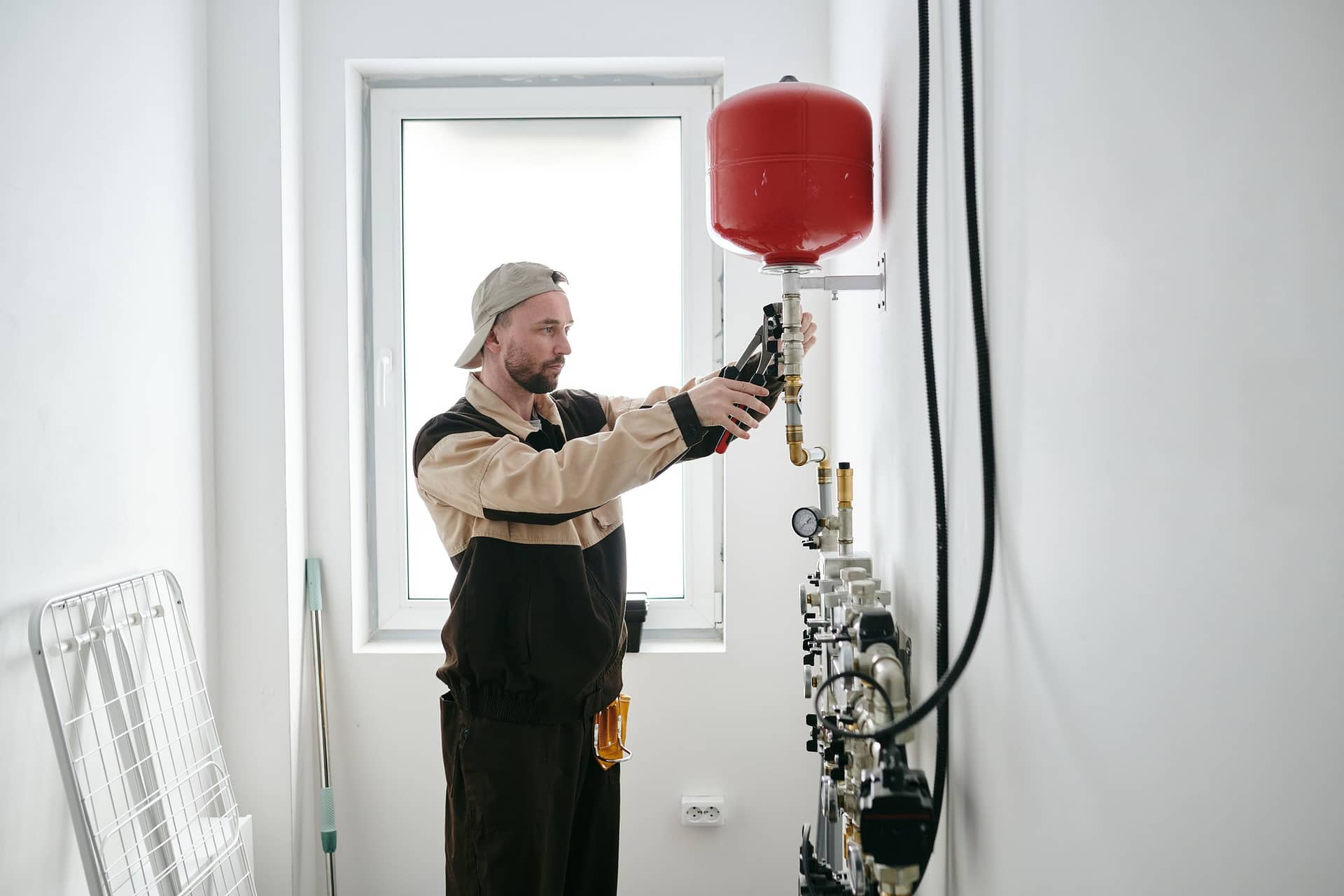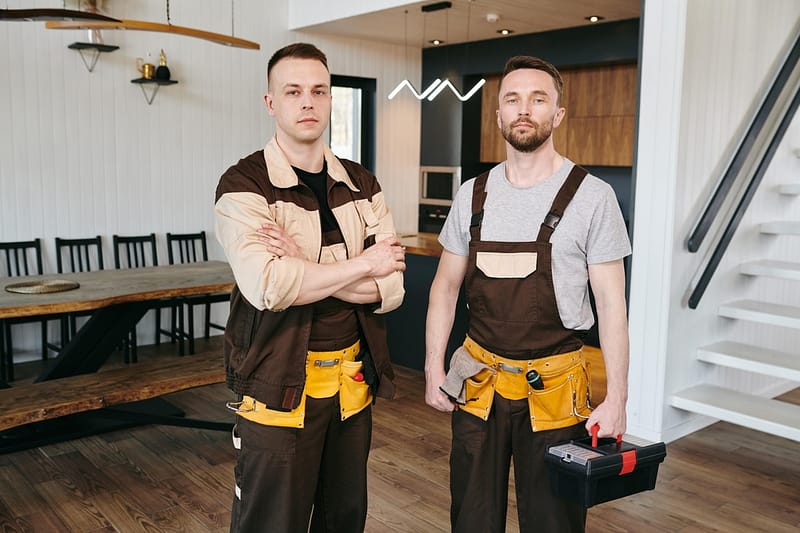Heating leak detection
The last thing you want is for issues to occur with your heating systems, such as a leak or damage. The central heating system in your home is a complex installation that connects to the water mains and radiators. It’s essential to maintain your heating system to keep your home warm and cosy, especially during winter. We’ll discuss what you can do when problems arise with central heating systems.

Water damage repair
Water damage is a common cause of structural and electrical issues, as well as mould, mildew and other health problems. This can be a significant expense to repair. Typically water leaks are not visible, but they do cause damage over time if not fixed properly. To help you keep your home dry this winter season, we’ve put together some helpful tips to reduce the risk of water damage:
- Check your appliances regularly for leaks or signs of moisture around them;
- Turn off the dishwasher when it’s done so that any remaining water drains away from your house;
- Make sure all plumbing fixtures are accessible so you can turn them off when not in use;
- Keep gutters clean and clear from leaves, so rainwater doesn’t back up into your home through downspouts or roof drains;
How a central heating leak can be identified
If you’re looking to identify a leak in your central heating system or want to make sure that it’s working correctly, there are a few simple ways you can check.
- Check your radiators. The first step will be checking the radiator valves and ensuring that they’re adequately closed. Then, use a wrench to tighten them if necessary. If any of these have been left open or loose, this could cause problems with your central heating system as well as wasting energy by leaking hot water away unnecessarily.
- Check for leaks at joints on pipes and valves around the house – these are common areas where leaks occur! You will need an infrared thermometer (available from hardware stores) to do this effectively; point the device at each joint after first shutting off all hot water sources in order not to disrupt readings by existing heat leakage from elsewhere in-house – this may take some time but will help identify precisely where any potential problems might lie before attempting repairs yourself if necessary later down the line when all other possibilities have been ruled out.
Call now for a free estimate!
How to prevent central heating leaks
You can prevent central heating leaks by checking the following things:
- Replace old pipes, fittings and radiators. If you have an older system, it may be time to replace some of the old pipes. Old or damaged pipes are more likely to leak than newer ones.
- Check insulation around pipes and radiators for damage. If there is any damage to the insulation, then water can get through and cause a leak in your heating system.
- Check valves and radiators for damage before winter arrives as this could mean that they will burst during cold weather when there is more pressure inside them as a result of higher temperatures outside, increasing the air pressure within your home, so make sure that these are checked regularly throughout autumn months in particular, so you know where any problems lie before they become serious.
Underfloor heating leak detection
- Listen for the sound of escaping water. A leak can often be identified by listening for the sound of running water in your home, primarily if it occurs during a time when you are not using any other appliances.
- If you smell a musty odour or even just an abnormal scent from your heating system, this could indicate that there is gas leaking in your house and needs to be repaired immediately by professionals such as those at Leak Detection London.
- Smell the air around your home; if there’s a solid musty odour coming from somewhere near where you live (such as near vents), this may be due to mildew building up inside walls—which means it’s time to call an expert technician like Leak Detection London, whose technicians can perform moisture testing so they’ll know what course of action should be taken next!
Central heating boiler losing pressure
A pool of water beneath a radiator, or a boiler that’s losing pressure, are usually the first signs of a central heating system leak.
A water-fed central heating system is sealed. It should maintain pressure if there are no issues. However, the pressure within the system will increase and decrease slightly as it heats up and cools down again. If the pressure drops regularly and needs to be topped up with water, this is a clear sign of a problem.
If a boiler is losing pressure, a leak in the central heating system shouldn’t be assumed automatically.
A pool of water under a radiator can be caused by condensation from the hot air passing through it, which needs to be removed due to health concerns (the vapour may contain harmful bacteria). If this happens regularly and there isn’t any mould present on the wall behind the radiator, then it’s likely that there isn’t an issue with your central heating system – it’s just something that happens every now and then (especially if you have radiators near doors).
If there’s no sign of mould growing anywhere else in your house, but you’re still concerned about leaks in your central heating system, then call us today!
Call now for a free estimate!
Heating leaks can be prevented and repaired.
Low boiler pressure is something that can cause your central heating to stop working or to only work intermittently. It’s a common problem, and our team are experts at finding and fixing leaks in your central heating system.
We’ll use a range of specialist tools to find the leak, including a pressure gauge, which allows us to check for leaks in the system at different points along its length. Once we’ve found the leak and repaired it, you’ll be able to enjoy coming home to a warm cosy home!
If you’re living in a house with central heating that rarely seems to work, it’s time to call in the experts. A low-pressure warning is a sign of a leak somewhere in your central heating system.
You’ve come to the right place—we can find and repair the leak so you can enjoy coming home to a warm, cosy home.
Don’t let leaks ruin your home life! Call us today on +44 20 8168 1121.
Can I use my heating system if I think I have a heating leak?
If you suspect that you have a heating leak, it’s essential to know that there are specific conditions under which you can use your heating system. If your home has a gas- or oil-fired boiler, these conditions include:
- When the boiler is not required to be serviced by an engineer, and it has been serviced within the last three years (or six years if the boiler was installed before 1 January 2005)
- When the boiler’s output is less than 100 kW (kilowatts), its manufacturer specifies that it can be operated safely without supervision.
If these conditions apply in your case—and if you’re still unsure whether or not this applies to you—it’s best to call an engineer who specializes in heating systems for advice on how best to proceed. In general, though, we recommend that if at all possible, try not to use your central heating when there is no one home with experience operating it.
How do I fix a heating leak?
- Check the heating system. Look for any obvious problems, like missing insulation or a busted pipe. If you can’t find anything, call an HVAC professional to take a look at it.
- Check the ducts. Make sure there’s no damage to any of them and that they’re adequately sealed throughout your home.
- Check the doors and windows. Make sure they’re not letting cold air in where it shouldn’t be going—like into your attic or basement or around windowsills and siding—especially if you live in a climate where winter temperatures dip below freezing regularly
- Check the insulation of all pipes in both warm-air locations (like attics) and cool-air areas (such as basements). You’ll want more insulation on the pipes themselves than just surrounding them with foam strips; otherwise, those areas could be prone to icing over during winter months when exposed pipes aren’t insulated properly enough!
Call now for a free estimate!
How much does it cost to fix a heating leak?
The cost of fixing a leak depends on the size and type of your heating system, but if you’re unsure whether or not you have one, it’s best to call in a professional to diagnose the problem.
There is some sort of problem with either how hot water is flowing through pipes throughout each room (causing different rooms’ temperatures) or perhaps even where steam from radiators might be leaking out into hallways instead of being redirected back into spaces where they’re needed most!
Conclusion
We hope this guide has given you the information you need to take care of your central heating system. If it hasn’t, don’t hesitate to contact us for further advice and guidance. We have an expert team on hand who will be able to provide more information about our services and products, as well as answer any questions you may have about your central heating system.
Hopefully, we’ve helped you solve your heating leak problems. If you need more help, don’t hesitate to call us at +44 20 8168 1121.











